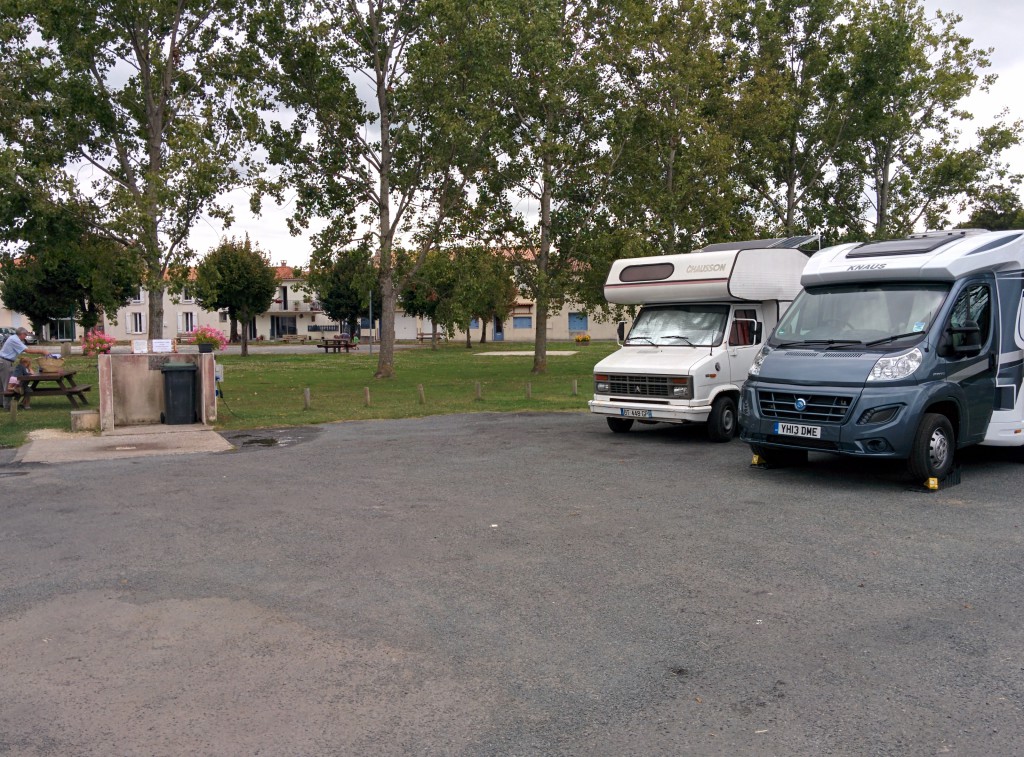You are planning a motorhome trip in Germany and want to be up to date with the current motorhome legislation there? Find out everything you need to know about motorhome rules in Germany in this article!
Motorhome rules for driving and parking in Germany
Driving a motorhome in Germany
What driving licence do I need to drive a motorhome?
If you’re planning to drive a motorhome weighing 3.5 tonnes or less in Germany, a category B licence will be enough. On the other hand, if you’re planning to drive a vehicle weighing more than that, you’ll need a category C1 or C licence.
Even if you don’t need a special licence to drive a motorhome, you should be aware that you will need time to adapt to the vehicle’s size before setting off on your journey! A word of advice? Before taking to the road in your motorhome, keep in mind the dimensions of your RV (width, length and height)… Be careful, as some bridges you come across in your host country may have height restrictions. If you come across a site referenced on CaraMaps with a barrier, mention it in a comment to warn future travelers and avoid any unpleasant surprises.
Is there a special Highway Code for motorhomes?
The StVO (Straßenverkehrsordnung), which governs car traffic in Germany, is the same for motorhomes! On the other hand, motorhomes over 3.5 tonnes will have to comply with different speed limits.
If you are driving a motorhome weighing up to 3.5 tonnes, the speed limits are:
- 50 km/h in towns
- 100 km/h outside towns and villages
- 120 km/h on express roads
Most German motorways don’t have speed limit, but the German automobile association (ADAC) recommends a speed limit of 130 km/h.
If you are driving a motorhome with a weight between 3.5 and 7.5 tonnes, you will have to respect these speed limits:
- 50 km/h in towns
- 80 km/h outside towns and villages, including express roads
- 100 km/h on motorways
As a general rule, you should always comply with local motorhome rules in Germany. Some municipalities or regions may impose special bans on vehicles of a certain size. Of course, we indicate the maximum speed limits, but you are free to drive slower to better appreciate the landscapes you explore in your motorhome.
How much should I pay on the motorway when travelling in a motorhome?
Since the introduction of a “HGV toll” in Germany in 2015, motorhome drivers have often wondered whether they should pay motorway tax. However, motorway tolls for heavy goods vehicles do not apply to motorhomes, but only to vehicles carrying goods. In fact, according to Article 1 of the federal law on tolls on national roads, “For the use of federal motorways and federal roads with vehicles as defined in sentence 2, a fee […] must be paid (toll). Vehicles are motor vehicles or combinations of vehicles,
- are intended or used for road transport and
- have a total authorised weight of at least 7.5 tonnes.
So if you’re not using your motorhome for commercial purposes, you don’t pay motorway tax!
There is, however, one exception to the toll rule, and that concerns the Warnow and Herren tunnels. For the Warnow Tunnel, the charge is €3.77 for motorhomes over 2.05 metres and €8.58 for motorhomes of 2.60 metres or more (off-season prices). For the Herren tunnel, the charge is €3.50 if your vehicle has two axles and the height above the front axle is 130 cm.
Motorhome parking

When parking, motorhome drivers, like car owners, must comply with the Highway Code (StVO) and the various road signs. Most motorhomes, vans and converted vans can be parked in public spaces, on the roadside or in car parks. However, certain restrictions apply to vehicles over 3.5 tonnes.
Keep in mind those rules:
- Parking is prohibited in narrow streets. There must be enough space for vehicles measuring 2.55 metres (plus a distance of 0.5 metres) to pass. As motor homes are wider than cars, there is often not enough space.
- There is no time limit on parking your motorhome if it weighs less than 7.5 tonnes and if you comply with the StVO (e.g. no sign prohibiting parking). However, if your motorhome weighs more than 7.5 tonnes, it is forbidden to park it in residential areas between 10pm and 6am and on Sundays and public holidays.
- If you have registered your motorhome with a seasonal plate, you may not park your vehicle in public spaces outside the period indicated on the plate.
- Motorhomes must not protrude above the ground markings when parked.
- Vehicles over 2.8 tonnes may not be parked on pavements.
- Motorhomes may be parked on private land with the permission of the owner.
Do you know the CaraMaps hosts? A CaraMaps host is a private individual who wishes to make space and services available to motorhome travellers. Becoming a CaraMaps host is a great opportunity to make the most of a free space while receiving additional income! You can access the list of all CaraMaps hosts by ticking the “CaraMaps host” filter. Find out more in our FAQ section here!
Wild camping in Germany in a motorhome
There are no specific motorhome regulations governing overnight stays in a motorhome. Wild camping in a motorhome is generally permitted in Germany thanks to regulations that allow drivers to “restore their driving ability“. These regulations allow drivers to stop and rest in a car park before getting back on the road. So you can park by the roadside or by a lake as long as the parking is not private, there are no prohibition signs and you respect the environment!
But be careful! Camping-style behavior is not really permitted during this break. You should avoid taking out your accessories and your awning. The break to “restore your driving ability” lasts 10 hours. So it’s perfectly possible to get a night’s sleep. However, if you decide to camp without permission, you risk a fine of between €10 and €2,500.
It is forbidden to drive on forest tracks! Signs usually indicate this prohibition. Parking and/or camping in nature parks or biosphere reserves are also prohibited. If you’d like to go camping in peace and quiet, take a look at the campsites and service areas listed on our map. Each site is accompanied by comments and photos from members of our community!
You should also be aware that wild camping may be tolerated to a greater or lesser extent depending on the region. Bavaria, for example, is one of the strictest German states when it comes to wild camping, partly due to its many nature parks. So it’s a good idea to find out beforehand what the regulations are for motorhomes in the regions where you’ll be travelling!
Want to find out more about wild camping in Germany? Have a look at our blog article “The best places for wild camping in Germany!”.
How motorhomes have been regulated in recent years
Restrictions to protect the environment
In Germany, 56 environmental zones have been created since 2008 to limit carbon emissions. If you plan to drive in an “environmental” zone, your vehicle will need to have a sticker on its windscreen. You can find a map of all the environmental zones in Germany here.
There are four categories of polluting vehicles. We also recommend that you visit this site to get your sticker!

Gas test
Since January 2023, the gas test for motorhomes has once again been compulsory, independently of the main inspection. The gas test is used to check the motorhome’s entire gas system. The Federal Ministry for Digital Affairs and Transport (BMDV) and the German Liquid Gas Association (DVFG) recommend checking the gas system every two years! If the system is faulty, the vehicle could lose its operating licence. Note also that it’s up to the owner to carry out the test!
Increase in fines for motor caravans
Since 2021, Germany has tightened its legislation on speeding. As a result, speeding fines for both cars and motorhomes have risen considerably! For example, for exceeding the speed limit by up to 10 km/h in town, the fine has risen to €58.50 for motorhomes weighing less than 3.5 tonnes. For motorhomes over 3.5 tonnes, the bill is just as steep, with a fine of €68.50 for exceeding the speed limit by up to 10 km/h in town!

Planning a road-trip to Germany? Check out our bonus itinerary for a special trip to Germany here!

In addition to this superb itinerary in Germany, discover other itineraries in this country shared by the community, such as «My tour of Germany», «Nature and adventure route in the Black Forest» and much more!
Did you like the experience of your touring trip offered by CaraMaps and the advice from the community? Share your best anecdotes or photos thanks to the 100% collaborative CaraMaps application!
Follow us now on our Instagram page @caramaps where you’ll discover incredible spots, and on our Facebook page where you’ll find new areas, new itineraries and news from the motorhome world every day!
Check out our other blog articles: «Motorhome rules in France in 2023», «The best places for wild camping in Germany» and many more!


